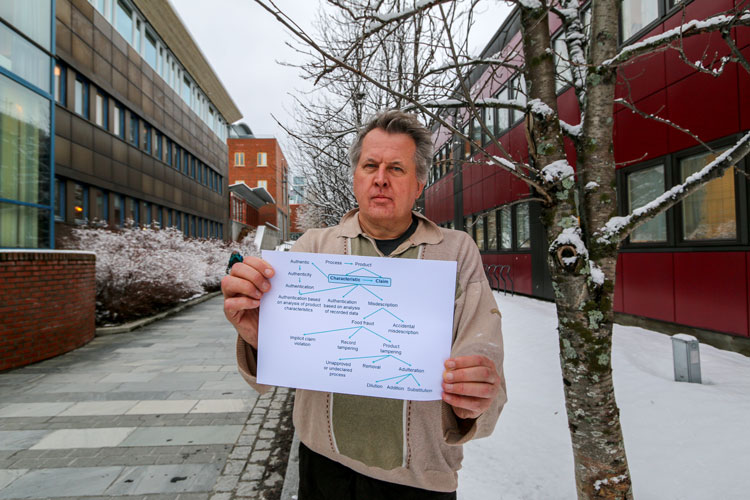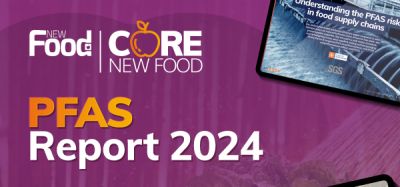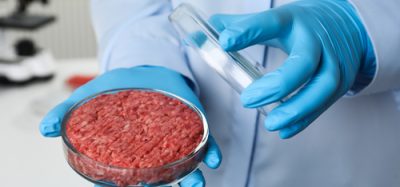Nofima launches a new European standard for food fraud
- Like
- Digg
- Del
- Tumblr
- VKontakte
- Buffer
- Love This
- Odnoklassniki
- Meneame
- Blogger
- Amazon
- Yahoo Mail
- Gmail
- AOL
- Newsvine
- HackerNews
- Evernote
- MySpace
- Mail.ru
- Viadeo
- Line
- Comments
- Yummly
- SMS
- Viber
- Telegram
- Subscribe
- Skype
- Facebook Messenger
- Kakao
- LiveJournal
- Yammer
- Edgar
- Fintel
- Mix
- Instapaper
- Copy Link
New initiative aims to make communication regarding food fraud more precise.


Petter Olsen from Nofima presents the hierarchical structure of terms relating to food authenticity and fraud. The aim of the 20 page document is to improve international communication on this important subject. Photo: Emil Bremnes / Nofima
Petter Olsen, a senior scientist at Nofima, the Norwegian Institute of Food, Fisheries and Aquaculture Research, has led a European initiative with the objective of making communication regarding food fraud more precise.
Together with food fraud experts from several European countries, Petter has created a European standard that defines many of the English terms and concepts used in connection with food fraud. The words are placed in a hierarchical system that makes it easier to understand how they relate to each other.
The standardisation was coordinated as part of the EU-funded Authent-Net and FoodIntegrity projects. It was published in January 2019 by Standard Norway, and it is also being distributed by several other National Standardisation Bodies in Europe. The full name of the standard is CWA 17369:2019 – Authenticity and fraud in the feed and food chain – Concepts, terms, and definitions.
“We have created a common European standard in which all the definitions are interconnected and mutually consistent”, says Petter Olsen. “Terms relating to food fraud are often used interchangeably even though they mean entirely different things. This can lead to confusion and misunderstanding, especially across borders”, he says.
With food fraud a worldwide problem, many countries have committed considerable resources to combat the issue. “It is clear that this standard will be significant, especially when it comes to research and legislation”, says Petter Olsen. “For example, if one defines laws and regulations that refer to the tampering or adulteration of food, it is important that everyone understands the difference between these two terms. The same applies when developing statistics, creating reports, or writing scientific publications.”









The topic is very important and relevant. Since the concept has been elaborated by a project supported by EU, the document should be made available free of charge in English.